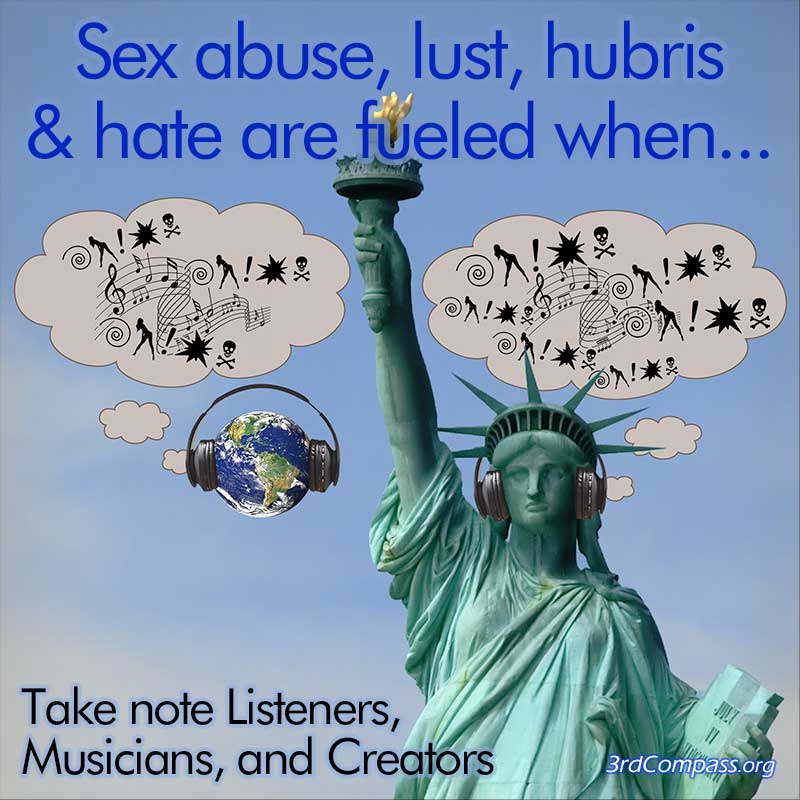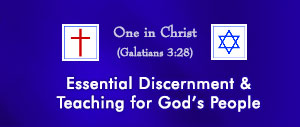
I got on the music streaming bandwagon as a listener in mid-2017. This led me to use one of the leaders in the industry, Spotify, since their basic service is free. Before this, I was a decades long user of iTunes and YouTube for music listening.
Spotify and Apple Music are the leading music streaming services in the United States. They have about 232 million and 60 million users, respectively worldwide[1,2], and we should note that Apple's numbers are paid subscribers, while Spotify's users include both paid and free subscribers (Spotify has about 108 million paid subscribers[1]). YouTube, though, by far eclipses them in user base at 1.5 billion monthly users[14] who also spend a lot of time listening to music on their service, as I often did and continue to do. YouTube also has significance here, because music is not the only thing we need to look at.
Something unexpected I found with my regular use of Spotify music streaming was that I could quickly see the top songs being played by people in the United States and around the world. When I first stumbled on Spotify's official Top 50 playlists (as opposed to other "top" playlists, which don't truly reflect listener counts), I was shocked to see how many songs were marked "Explicit" on them. The pages were often full of EXPLICIT markers as I scrolled down the lists. Could America and the world really love listening to morally questionable music that much?
Music labelled "Explicit" contains "curse words or language or art that is sexual, violent or offensive in nature" as defined by TuneCore for their artists. The labelling is up to the artists and record labels to administer correctly. In today's market of independent music publishing, this falls to the individuals releasing music, though, if an incorrectly labelled song is discovered to be explicit by retailers, the music can be banned, so it's in the best interest of artists to label their music correctly.
An explicitly labelled song may also contain only one swear word or instance that is offensive, so an explicit song may not always convey bad morals, but simply use an exclamation that most people consider offensive, such as using the word "damn" or other common exclamations or adjectives that are less offense.
I didn't proof every explicit song to see exactly why it was labelled explicit, but I did see some songs were much worse than others at showcasing inappropriate and offensive morals. The main point I want to look at is why are there so many explicit songs being released and consumed?
The large number of explicit songs in top playlists prompted me to start tracking them on Spotify and iTunes/Apple Music on an almost weekly basis from April 2018 to the end of 2019. I used the numbers for Spotify's "United States Top 50"[3] and "Global Top 50"[4] playlists, and since I don't have an Apple Music account, I got numbers for Apple from iTunes's store listings in their "Best of the Week" (now called "New Music Daily"[5]), "New Music,"[6] and "Top Songs (Top 200)"[7] listings.
The trends for explicit music being listened to and released by musicians, stayed fairly consistent during the time, going all the up to 96% on Spotify's United States playlist (see chart). Spotify's numbers averaged 58.1% overall (red bars in chart) with the United States playlist averaging 70.9% and the Global playlist averaging 45.3%.
iTunes' number of explicit songs (blue bars in chart) were about half that of Spotify, but were still fairly consistent. Apple's lower numbers likely reflect that they are for paying users and songs sold, while Spotify's numbers include users with free subscriptions. A disturbing trend in iTunes' numbers is that new music being released with explicit lyrics averaged 36.6% and was usually the highest bar for iTunes' numbers (middle blue bars).
These high numbers for the popularity of explicit music tell me our nation and the world is making and consuming this music very liberally. And as a minister who has seen the effects of what we accept and consume for the last decade, I see the world's love for bad moral examples in music, media, and entertainment has consequences that prevent safe and healthy lives.
You may think that my Christian beliefs are skewed towards prudish ideals, but most of my life was as an average secular person who consumed popular culture just like everyone else, so I have a very good understanding of what the world likes and consumes. It's only that my new life as a minister has brought the consequences of our moral choices into sharp focus when I saw and experienced the pains of succumbing to and fighting things that dark morality brought.
Our choices affect our families and loved ones when families split apart or when our loved ones are victimized by violence, abuse, lust, and discrimination. Opponents of the link between our actions and what we consume, like pornography and violent media and games, are quick to say no link has been proven. But as someone who has seen how choices in morality affect our thinking and very being in a more complete, holistic way, I can state that we often do imitate what we accept and consume.
It's not that we will all become serial murderers or rapists if we consume a lot of violent or sexual material, but the impulses that bad material link to are fuel for those impulses to get out of hand and become uncontrollable, especially when there is opportunity to commit an offense and the lack of self-control, such as when people use alcohol and drugs.
That is how darkness usually affects us - impulses are given strength - and if we accept them, we allow the impulses to control us. So when explicit music and media give more and more impulses that are so readily accepted, it begins to control our thinking, which then controls our behavior, especially if our sense of morality does not aggressively fight the dark impulses.
This is a big problem if young and morally ambiguous people are getting their examples of acceptable behaviour from bad sources. It used to be our children and the general public were shielded more from these influences by the FCC's laws for radio and TV broadcasting. People would have to seek out the explicit material by buying music, movies, or media directly or subscribing to cable or satellite programming.
Now with freely available music and media on the Internet, anyone, including our children, can easily access explicit music, pornography, and other inappropriate material. This is becoming more and more common as a recent article noted that young Americans aged less than 13 had more than doubled their time of watching online videos, and that included content that was supposed to be off limits for their age[15]. Furthermore, through social media, which is another common past-time for young people, the moral attitudes of others can greatly influence young and impressionable minds.
The Internet's bad influences came to light in an experiment by Microsoft when they launched a learning, AI robot on Twitter in 2016 to simulate a teenage girl[8]. They had to shut down the program in less than 24 hours because their robot became a promiscuous, genocidal, racist "monstrosity spouting Hitler-loving, sexist profanities for all the world to read"[8]. Why did this happen? It was because the robot learned through its conversations with people and apparently it had no morality programmed into it.
The Microsoft robot's initiation into all kinds of immorality is what you can expect our families to encounter if they are given free, unrestricted use of the Internet without good moral teaching to combat it. It goes beyond bad music and media. It includes the attitudes of people we view and have contact with in the media, and especially online, where they often become much bolder and brash in speech and motives when they are hidden behind computers and hundreds of miles of wiring. It emboldens bullies and predators of all sorts, so that in the decades since the Internet became popular, news stories of sex offenders and murderers getting victims from the Internet have also come with the Information Age.
However, I'm afraid the public in general is being influenced by dark media forces in broader ways than simply emboldening the criminals in our midst. It's spreading bad moral standards that are too commonly accepted and creating a new world where our children are becoming the sex offenders and murderers.
In recent months, I noted separate disturbing cases of teenagers gang raping a 13-year-old girl multiple times during school hours and a 14-year-old girl over the course of months in Israel[9,16]. And in Ireland, three young girls were gang raped by peers while on holiday[10]. I note these international cases because our morality problem is not simply an American issue, where it seems that most cases of rape have become too common to get the media's attention. According to RAINN (Rape, Abuse & Incest National Network), there is a rape every 73 seconds in America and on average, there are over 433,000 victims of rape 12 years old or older in the United States[11].
I acknowledge growing up and living in an America were children rape and murder. I remember the news stories throughout my life, but the same news rarely came from overseas. The statistics I gathered for explicit music gives America a lot of responsibility for spreading bad moral examples, because of the often much higher consumption rate of explicit music in the United States as compared to the Global list.
And another important factor, is I noticed the artists spreading most of the explicit music originate in the American market. In fact, America, Hollywood, and its creators are often the ones spreading the media that becomes most popular around the world.
Some of the most popular musicians, actors, and creators publicly advocate good moral examples, yet at the same time they participate in and release material that give horrible examples of moral judgment, especially if they are professing Christians. An example is rapper Kanye West, who admitted to accepting Jesus as Savior when he was asked about his faith after he released his song, "Jesus Walks," in his 2004 album, The College Dropout[12].
There is only one song out of 21 in that album that isn't marked "Explicit," and "Jesus Walks" isn't one of them. I don't want to pick on Kanye too much, though, as the music, movie, and entertainment industries are full of examples of people who know they are role models for the public and even wish to advocate good morality, yet they do not model appropriate language or behavior in their productions.
Who are we to blame, if the public is supporting these bad productions with their listening and viewing habits too? I think we're all to blame - the creators and the fans - but also the leaders, teachers, and parents who are responsible for teaching and being role-models for the creators and fans. There's failure at every level here, but it's the teaching and role modelling that are very important, since children learn their morality from family and friends.
I will give Kanye West credit, though, since he has been trying to clean-up his moral life. In 2019, he announced he would stop making secular music[13] and released a clean gospel album.
Still, there is much change that needs to be done by everyone, because the production and popularity of media that promotes bad morality continues to saturate the world's conscience. A large part of its continued success is because too often sex, violence, and bad behavior sells, so not only do creators have to stop making bad material, but customers need to stop consuming it. There will always be a market if there's money to supply it. So it's on all of us to be morally responsible people and stop supporting the production and consumption of bad material.
Let's not be complacent or in opposition to better moral standards, like I saw recently when YouTube told their creators had to comply with new federal regulations that try to protect children from inappropriate material. Creators are now required to mark their channel or videos as "made for kids" or not. A lot of creators complained about it, stating things like "we're not babysitters" or "where are the parents?"
Has the world become so lazy and insensitive that the simple act of marking a video to help protect children is opposed? If the welfare of children or anyone who can be harmed by their media isn't of concern to creators, then they seriously need to evaluate why they create what they do and sort their priorities. Is complacent convenience more important than people?


